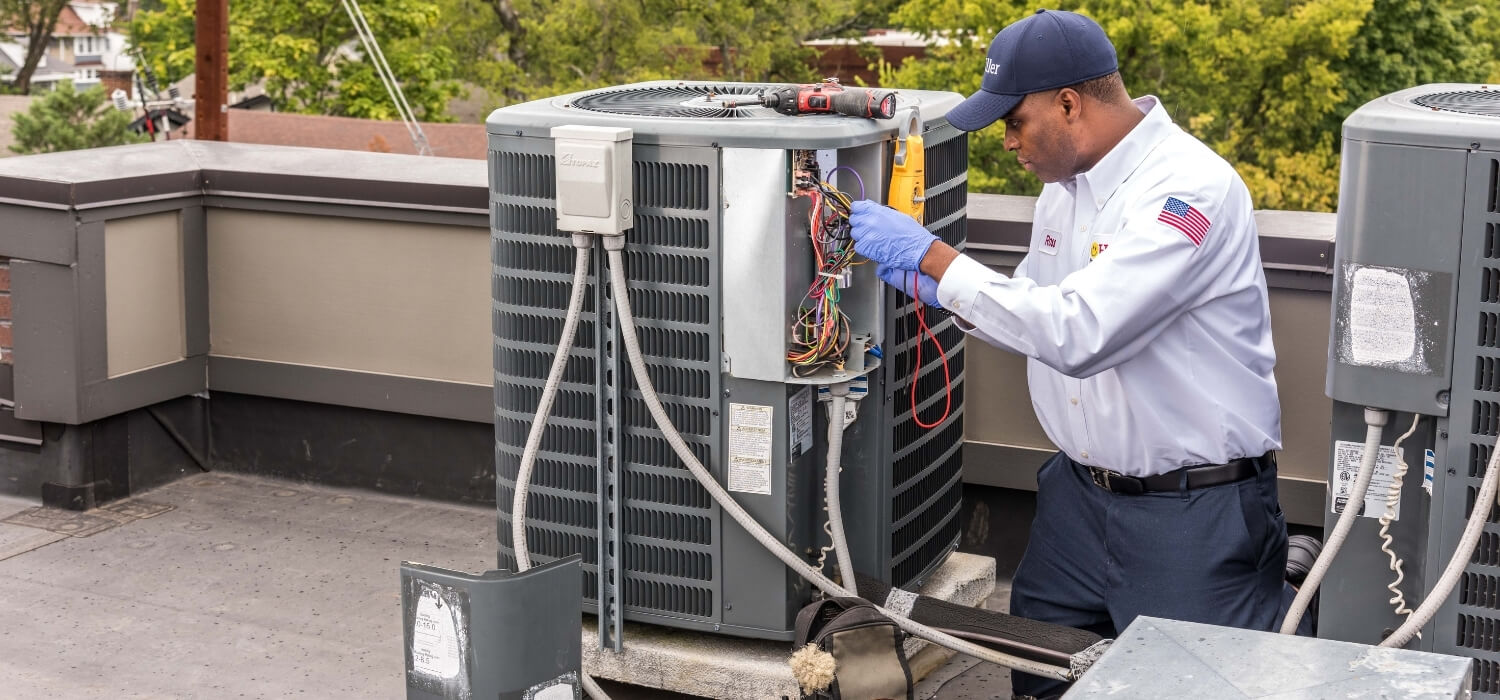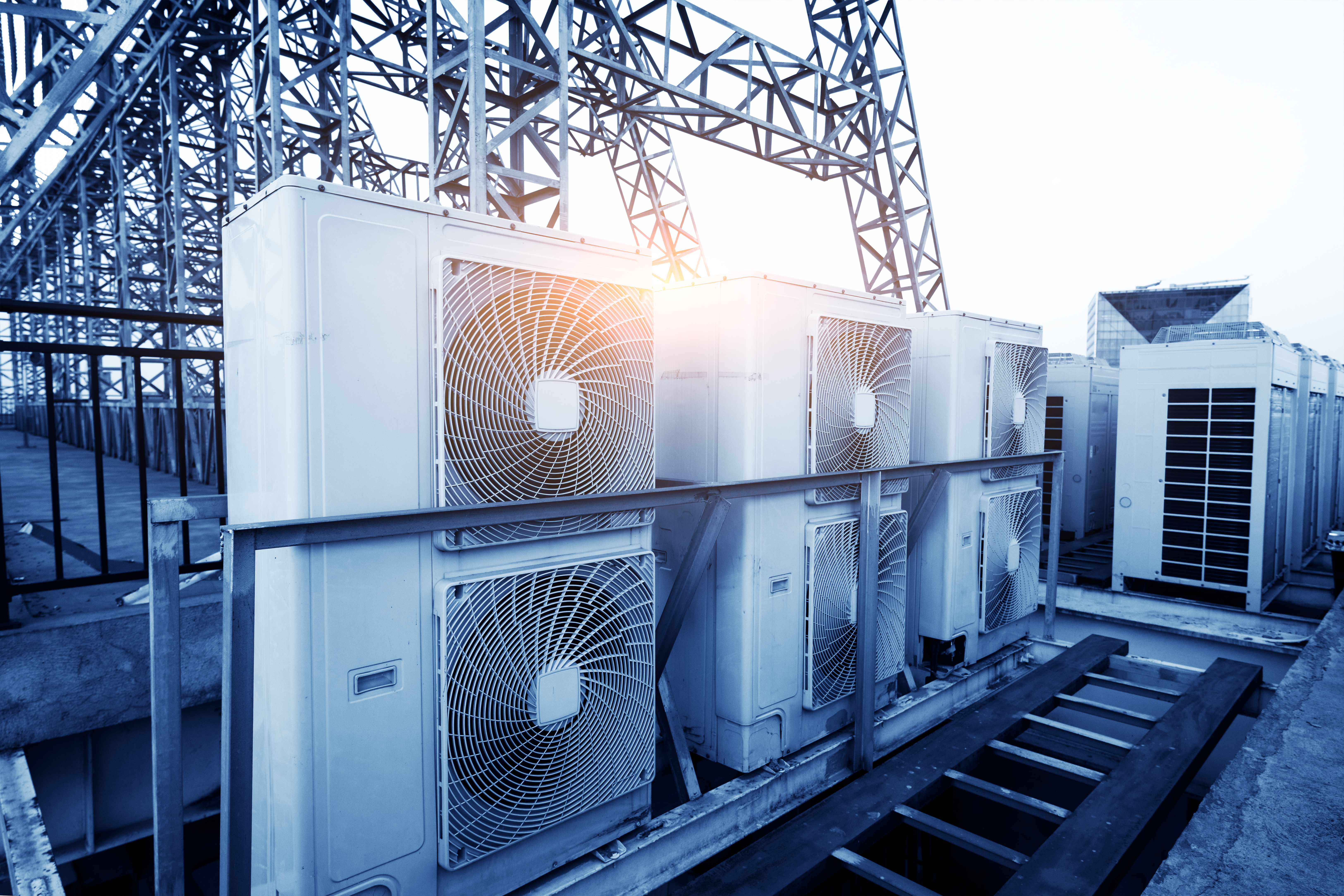Heating Contractor Concentrating On Reliable Home Heating Solutions
Heating Contractor Concentrating On Reliable Home Heating Solutions
Blog Article
How Air Conditioning Systems Revolutionize Indoor Atmospheres for Year-Round Comfort
The development of cooling systems has unquestionably changed the means we experience indoor environments, providing unmatched control over temperature level and comfort throughout the year. These systems surpass mere temperature level changes; they enhance indoor air top quality and add considerably to power effectiveness. With advancements like smart innovation and programmable thermostats, cooling has become a keystone of contemporary living, affecting health and wellness and well-being. Yet, while we enjoy the conveniences they bring, it is essential to analyze how these systems incorporate within our lives and their more comprehensive ramifications on sustainability and wellness. What are the hidden elements of this technical marvel?
Temperature Level Control and Versatility
When it comes to attaining year-round comfort, the importance of temperature control and flexibility in air conditioning systems can not be overemphasized. Modern air conditioning units provide sophisticated modern technologies such as programmable thermostats and variable speed compressors, which permit customers to maintain preferred temperature levels with exceptional efficiency.
Versatility is another critical part of contemporary air conditioning systems. Additionally, some systems integrate smart modern technology, enabling remote gain access to and administration with mobile tools.
In industrial spaces, this flexibility is especially useful, as it enables services to create customized atmospheres that enhance efficiency and client complete satisfaction. Ultimately, the precision and versatility of contemporary cooling systems play a pivotal duty in delivering efficient, year-round indoor comfort.
Enhancing Indoor Air Top Quality
In enhancement to temperature level control, boosting interior air high quality is an important facet of modern air conditioning systems. Incorporating high-efficiency particle air (HEPA) filters, modern-day air conditioners can catch microscopic fragments, such as plant pollen, smoke, and dirt, which add to respiratory issues and allergies.
Furthermore, advanced air conditioning systems typically include attributes such as humidity control, which is pivotal in stopping mold development and maintaining optimum moisture levels (HVAC Contractor). Too much humidity can result in pain, advertise microbial development, and aggravate certain health and wellness conditions. By controling moisture, air conditioning unit help reduce these dangers, further enhancing interior air top quality
In addition, some systems incorporate air cleansers and ionizers, employing modern technologies that counteract pollutants and shut down airborne pathogens. This thorough approach to air top quality management makes certain a healthier indoor setting, lowering the threat of health problem and boosting total wellness. Subsequently, the concentrate on air high quality enhancement underscores the evolving role of a/c systems beyond plain temperature guideline.
Energy Effectiveness Innovations
Modern air conditioning systems have undertaken significant innovations in power efficiency, contributing to both cost financial savings and ecological sustainability. The adoption of high-efficiency compressors, variable speed electric motors, and advanced refrigerants are essential advancements that have actually changed how these systems run.
Smart thermostats have actually additionally played a vital role in enhancing energy performance. These gadgets discover customer preferences and adjust cooling down timetables accordingly, guaranteeing that cooling systems run just when necessary. Combination with clever home innovations enables for push-button control and tracking, additional curtailing power wastefulness.
These refrigerants are not just better for the environment yet additionally enhance system performance, aligning with global initiatives to decrease carbon impacts. Developments in warm exchanger modern technology have enabled more effective heat transfer, improving general system performance.
Influence On Wellness and Wellness
The influence of a/c systems on health and health is multifaceted, influencing various elements of life. Mainly, these systems supply remedy for severe temperatures, which is critical for vulnerable populaces such as the senior and individuals with particular health conditions. By preserving a stable interior climate, air conditioning lowers the danger of heat-related illnesses, including warmth fatigue and iceberg heating and cooling heatstroke, thus guarding residents' wellness.

However, it is necessary to preserve air conditioning systems routinely to ensure their ideal capability and to avoid possible health threats connected with improperly preserved units, such as the spreading of microorganisms. Ultimately, when efficiently taken care of, cooling systems play a pivotal role in improving comfort, promoting health, and sustaining a healthier living setting throughout the year.
Integration With Smart Innovation
Smart technology has reinvented the means a/c systems run, offering boosted performance, benefit, and control. Modern a/c systems now integrate effortlessly with smart home communities, permitting customers to manage their interior environment from another location using smartphones or voice-controlled devices. This connection enables costco hvac real-time surveillance and changes, ensuring that energy intake is maximized and convenience is kept without the requirement for consistent hand-operated treatment.
The assimilation with clever technology also assists in the usage of sophisticated scheduling functions, allowing systems to change temperatures according to occupancy patterns and preferences. HVAC Contractor. This not only makes best use of comfort but additionally decreases unneeded energy use, adding to lower energy costs and a reduced carbon footprint. Furthermore, smart sensing units supply important data on air top quality and system efficiency, notifying individuals to prospective problems before they rise into expensive repairs
Additionally, compatibility with clever home assistants such as Amazon Alexa or Google Assistant enhances individual experience by giving hands-free control and the capacity to develop customized automation routines. As smart technology remains to progress, it will definitely bring further developments to cooling systems, guaranteeing they continue to be at useful content the forefront of offering optimum indoor atmospheres year-round.
Final Thought

In enhancement to temperature level control, enhancing interior air high quality is an important facet of contemporary air conditioning systems. Including high-efficiency particulate air (HEPA) filters, contemporary air conditioners can record microscopic fragments, such as plant pollen, dust, and smoke, which add to respiratory system concerns and allergic reactions. By regulating humidity, air conditioners help mitigate these risks, even more enhancing indoor air quality.
The focus on air high quality enhancement highlights the developing function of air conditioning systems beyond mere temperature policy.
Furthermore, air conditioning systems contribute to improved indoor air quality by filtering out pollutants, allergens, and particulate issue.
Report this page